#dionysos diety
Explore tagged Tumblr posts
Text

---I begin to sing of Dionysos ivy-crowned (kissokomes) the loud-crying (eribromos), splendid son of Zeus and glorious Semele. The rich-haired Nymphai (Nymphs) received him in their bosoms from the lord his father and fostered and nurtured him carefully in the dells of Nysa, where by the will of his father he grew up in a sweet-smelling cave, being reckoned among the immortals. But when the goddesses had brought him up, a god oft hymned, then began he to wander continually through the woody coombes, thickly wreathed with ivy and laurel. And the Nymphai followed in his train with him for their leader; and the boundless forest was filled with their outcry. And so hail to you, Dionysos god of abundant clusters (polystaphylos)! Grant that we may come again rejoicing to this season, and from that season onwards for many a year---
-Homeric Hymn to Dionysos
#hellenic polytheism#hellenic worship#hellenic#lord dionysos#dionysos#dionysos worship#homeric hymns#dionysos diety#dionysos hymns#undeadwhilealive#helpol#helpol dionysos
56 notes
·
View notes
Text



--Didn't write this and don't know who did--
But I absolutely love this poem so much!!
#dionysus#dionysos#dionysus devotion#dionysus devotee#dionysus diety#dionysus worship#hellenic pagan#hellenic polytheism#greek gods#helpol#paganism
541 notes
·
View notes
Text
I certainly hope Tumblr doesn't nerf this...
Tw: partial nudity

I have a love hate relationship with anatomy, but his flame flickered like crazy when I showed it to him, so at least he likes it.
#dionysus#dionysian#dionysus deity#hellenic pagan#baby witch#dionysos#dionysus diety#dionysus worship#witchcraft#Dionysus art#traditional art#based on a really cool sculpture i found on Pinterest
96 notes
·
View notes
Text
I think Ambrosia doesn’t have a recipe because it caters to the senses of those who drink it.
To Aphrodite it would smell of roses and blood, with the salty taste of sea foam to accentuate it. It feels like the warm feeling you get when you look in the mirror and realize you love yourself; or when you look at someone and realize just how gorgeous they are to you.
Dionysus’ cup would smell to him of rotting fruit and pheromones, it would taste of honey and the richest of grape, with a slight undertone of pine. You would drink it and it would dull the senses, cause your eyes to squint and your pupils to widen. It would warm that space between your thighs, and feel like the safest embracement of your most sensitive spaces.
Many more examples could be given, however more I cannot provide tonight. Sleep well, dear children. I rest my case as well as my weary head.
#spilled poetry#poetry#greek gods#greek mythology#greek myth inspired#greek gods poetry#ambrosia#aphrodite#dionysus#dionysos#aphrodisia#divine#diety worship#dieties#dyonesian
14 notes
·
View notes
Text

Dionysus - Greek God of Wine and Festivity Statue by Yalu&Freedom
#aesthetic#dionysos#greek mythology#greek gods#greek pantheon#dionysus#dionysus diety#theoi#hellenism#hellenic#hellenic deities#hellenic gods#hellenic pagan#hellenic polytheism
147 notes
·
View notes
Text
The Garden of Innocence
Dionysus x Ariadne | Greek Mythology | Teen+
Summary: Theseus is Edward Cullen a real piece of shit.
Illustration panels: (x)
Chapter 4
The truth was, Theseus was an excellent sailor. He was a novice, however, at killing monsters. He looked like an athlete, sure. But it was from frequent jogging and press-ups. Swords weren’t really his thing. He had not expected to survive the labyrinth.
He was twenty and had gotten lucky. And he loved Athens.
That, and he was the last, obviously, to find the Minotaur. He successors at been a series of Athenian youths each as strapping and wholesome as himself. They’d put up good fights. Theseus was painfully aware of having delivered the death blow and no more. The creature had stumbled toward him with weak eyes and a bruised head. He would tell them that. When he got home. He’d give a speech about group-effort, and sacrifice and all that.
But the stench. And the bones crusted over with … whatever it hadn’t eaten. Theseus couldn’t bring himself to say gristle. He’d somehow expected to find the tributes’ bones slurped clean. He’d been wrong.
He was just tiptoeing around his pal’s entrails, when the thing charged him. As it did, he skewered it through the eye with a rib snapped from the litter on the floor. It was just enough longer than the monster’s horns. And after it fell, he stabbed it again. He even opened its dead mouth, rammed the splintered rib through the back of its throat and left it there. No longer was he thinking of Athens. He was thinking of his back, and the fear of turning it to run.
That is what happened. That is how the Minotaur died. And after, Theseus followed an insubstantial embroidery thread to find his way out again. It was an vulgar place. Even with the monster’s death-rattle behind him, the maze still breathed like a drunk old man. When he returned to the light of Knossos, he was sweating and white as with fever.
The princess was overjoyed to see him, never minding his drenched hair and shaking hands. He sunk to his knees, hid his face in her skirts. He clung to her lap like a begging slave. He’d never expected to see girls again. And this one doted on him. Next thing he knew, her things were packed.
He couldn’t just leave her.
The ship seemed so empty. There was not one surviving tribute besides himself. Would he return home a hero? Or merely a guilty survivor? He needed time to think. And the voyage from Crete to the mainland was short. He felt terrible for tricking her. He really did.
But she believed him so easily. Where was the hurt?
Their second night on Naxos, he build her a fire of blue and green. They gazed at stars and she fell asleep with her head in his lap.
He nodded off only a few times, his chin dipping to his chest just before he startled awake again. His legs and lower back cramped from the rigid stillness of that night. He knew he deserved it. There was sand in his ass. He deserved that too.
He would not wake her. The little movement he allowed himself was to touch her curls. It was a pleasure. “You’re so soft,” he whispered, trailing his fingertips along her cheek, down her neck.
The dark ocean was loud, almost menacing. The earliest light turned it purple— like wine. Every groaning tree, even the little frogs that peeped made his neck prickle. Some hero, he thought.
As the sky yellowed, Theseus could not bear it any longer. “Princess,” he said giving her shoulder a squeeze. When she only stirred a little before falling back asleep, he spoke louder. “Ariadne.”
“Hmm?”
She blinked up at him and yawned.
“I need to talk to you.”
The way she looked a him. No longer with guileless fawning, but caution. Like a startled animal when a twig snaps.
She sat up, inching to the very edge of his cloak. For a moment no part of them touched. Then she lay a hand against his thigh.
“Yes?” she said.
He rubbed the back of his neck and gulped. “The wind is right today,” he said, “I could probably reach home by dusk.
Her face brightened. “We’re going to Athens! Oh!” Her hands found both of his.
He looked just past her, at the lonely ship bobbing in the rising tide. He tried to let go of her, but found himself gripping her fingers all the tighter.
“You can’t go with me,” he said at last.
“What?”
His breath shook, “Ariadne, I can’t marry you.”
She jerked her hands out of his, her face flushing in an instant. “Well, that’s too bad because you’ve got to now. I’ve been alone with you for days. It’s not as if I can go back to my parents. So. So you’ve just got to. Too bad, Theseus.”
He looked away, reddening. “I have not taken your honor,” he mumbled.
“Oh? According to who? Who’s going to tell Minos that I happened not to fuck the big, tall, strapping prince I’ve spent the last two days of my life alone on the beach with?”
Something in the pitch of her voice annoyed him.“A priest might still confirm your purity,” he said harshly. There was no cause for her to make a spectacle of herself. “I am sorry. Truly, I am.”
“Theseus, what are you saying? I thought- I thought-“
“I do love you,” he said, and meant it, “But I can’t bring you into Athens.”
“Why not?” she cried.
“Have you even thought what it will be like?” he raised his voice, tears now in his own eyes, “Every year since you can remember. Your parents—“ His words were brittle with sudden anger, “Do you realize what they levied from us? A ship full of - of-“
“Of children,” she said, “Don’t talk down to me, Theseus. I helped kill my own brother and ran away from home for your cause.”
“Your brother? How can you call it that?”
The dull eyes. The grinding teeth. Hot breath in the dark.
She held her head up to look him sharply in the eye. “He’s already dead. Is it anything to you if I show him a little dignity.”
“It eats fourteen children every harvest and you’re concerned with its dignity?”
He was flushed, shaking in his anger. She was frightened. “Ate,” she said through ground teeth.
“What?”
“You said eats. He’s dead. He ate them.”
“I am not doing this with you. I have wronged you, I freely admit, but let our last words be of respect and good sense.”
“We were siblings. What I have done is cursed. You have my loyalty which is all I can give. I cannot change blood and nature and history to your liking.”
Theseus looked very near to striking her. She held rigidly still. She would not flinch from him; she had already given enough.
“It is as I have said.” He frowned deeply, but appeared to have mastered his temper. “You are not a fit bride for Athens.”
“But what about for you? I love you.”
“I know,” he said. “But I am not my own person. I came to Knossos ready to die for my city. I will not lose what I have fought for over an imprudent marriage.”
“You sound like a king,” she said.
“I will be a king. And Athens and Crete are still enemies. Can’t you see what will happen?”
She could, but was too offended to relent.
He took her silence for ignorance. “If I take you to Athens, your father’s fleet will be right behind us. His wealth is in gold and ships. If he plunders us, he could afford the mercenary forces necessary to move further into the mainland.”
“Don’t you think I know him a little better than you?” she answered sharply, “I humiliated him. I’m not worth the ships it would take to recover me.” When he opened his mouth to argue, she cut him off. “You did this, your grace.”
He looked away from her. “Fine. Say he didn’t follow us. It’s still not acceptable. My father will arrange a marriage for me that will credit him. You will not. At worst, you may be persecuted for a spy.”
“But you love me.”
“Not enough to lose wars for you.”
She backed away from him, an angry knot in her gut. “You used me.”
“I did not mean to— I didn’t think of it—“
“Really? You seem to think of everything else.”
“Ariadne, you have to forgive me—“
“I don’t have to do anything.” For a moment she seriously considered spitting at his feet.
“I didn’t think I would live — I thought you were the last girl I’d ever see. I shouldn’t have—. Ariadne, I’m sorry. I have wronged you, I am wronging you now, but—“
“You should go.”
He reached for her, but she turned her face away. His last kiss landed awkwardly on her ear. She flinched in disgust. For a ludicrous moment, he thought he must still smell of the pit, of the bull’s humid panting.
“The gods keep you, princess,” he said.
“Take your cloak. I don’t want it.”
She neither replied nor turned away. But she watched him all the way to his boat. Only once the vessel was free of its mooring did he realize she was gone. He had not seen her run. Theseus squared his shoulders, calves straining to push the hull through the sand. He could be home by dusk if he kept focus. A humid wind filled his black sail, and he jumped aboard.
@dionysian-daydream @hycinthrt @withlovefromolympus @kebriones @margaretkart @lefty-scissors @human-still-developing @a-world-of-whimsy-5 @silly-billy-the-bunny @shitfacedalways
38 notes
·
View notes
Text
Call me out, why don't you? Seriously though, I needed this.

#dionysus#witchcraft#dionysian#dionysus deity#hellenic pagan#baby witch#dionysos#dionysus diety#dionysus worship#hellenic polytheism#healing#mental health#eternally grateful to my partner for helping me heal#shoutout to Dionysus as well; he's a real one
79K notes
·
View notes
Text
Behold! A Dionysus x Orpheus part headcanon/part mini fic ‘thing’ that has been haunting my brain.
They reunite with much joy and relief. In a world where chaos slowly gains ground and everything is changing around them, they're the one constant left to each other. Orpheus, the last remaining connection Dionysus has, that hasn't been brutally ripped from him. Dionysus, the one steadfast presence left in Orpheus’s life now Riddy has gone. The old order is dying, the future is uncertain. But they have each other and they find solace and comfort in that.
Dionysus’s faith in Orpheus never shirks, Orpheus’s support for Dionysus never wavers…Feelings form. They're both men of extremes, they fall fast and they fall hard. But his time in the Underworld has left Orpheus plagued by self-doubt. He berates himself constantly for being obsessive, selfish and suffocating with those he loves. He swears to be better for Dionysus. So despite it being completely against his nature, despite his overwhelming desire to prostrate himself at the god's feet and worship him with every fibre of his being. He instead holds back, tries to love Dionysus subtly and quietly. At a time when Dionysus, a naturally exuberant diety, needs loud and consistent shows of affection more than ever before.
Dionysus watches his friend withdraw and questions if his love is reciprocated. Orpheus sang for Riddy, as if he couldn't keep all that love for her within himself. Yet he receives nothing but shy smiles and careful touches from the musician. Perhaps his father was right? Perhaps the love he craves is forever out of his reach, held at bay by the divine ichor in his veins.
Orpheus watches the one he adores wilt, watches this vivacious, glorious being dim like a smothered flame. Knows it is once again somehow his fault. And hates himself all the more for it.
Until one day, Orpheus, in an attempt to heal whatever he has wrought, presents Dionysus with a watch. A gift, he calls it. A replacement for the one the young Olympian nobly sacrificed on his behalf. And Dionysus, with a rare solemnity for the god of frenzy, offers it back to him. Says he's gifting it in turn to Orpheus, and asks, ‘Would you wear it?’ It's a pivotal moment, they both know it. A test, though the mortal doesn't know the hows and whys of it. And in that moment, high on nerves and adrenaline, Orpheus lets his control falter, and lets slip in his most devoted manner, that Dionysos may as well brand it permanently on his skin, as he'd never take it off.
Kicking himself, Orpheus instantly goes to apologise, retract his fumble. Until he sees the golden fire alight in Dionysus's eyes. And a hopeful smile play upon his lips. The god takes his wrist reverently in his hand, before pointing to the base of the inked titan Atlas, hefting his mighty burden and questions in a frenzied whisper, “Here?” Orpheus smiles brightly, offering his wrist in willing sacrifice and declares earnestly and adoringly, ‘Anywhere you want.’ He watches with exhilaration as the blue veins under the god's digit darken, spread and begin to form a design.
Later, his mind already a whirl with lyrics, sprung from the taste of wine found upon his new muses lips, Orpheus asks cautiously if this is truly alright? If he's not too much? His divine lover smirks playfully, nipping at his newest tattoo, a clock face encircled by the god's signature vines, emblazoned on his wrist for all to see. “I'm the god of excess Phe.” The blonde declares proudly. “There's no such thing as ‘too much’.”
(I may return to write this out properly as a fic at some point, time allowing. But I needed to get it out of my head and onto paper, so to speak. These two are driving me crazy in all the best ways.)
#orpheus x dionysus#orpheus/dionysus#They've buried themselves into my soul and can't be removed#It's too late#I can't stop#I don't want to#dionysus kaos#orpheus kaos#Kaos#kaos netflix#wine&song
33 notes
·
View notes
Text
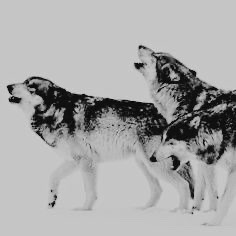

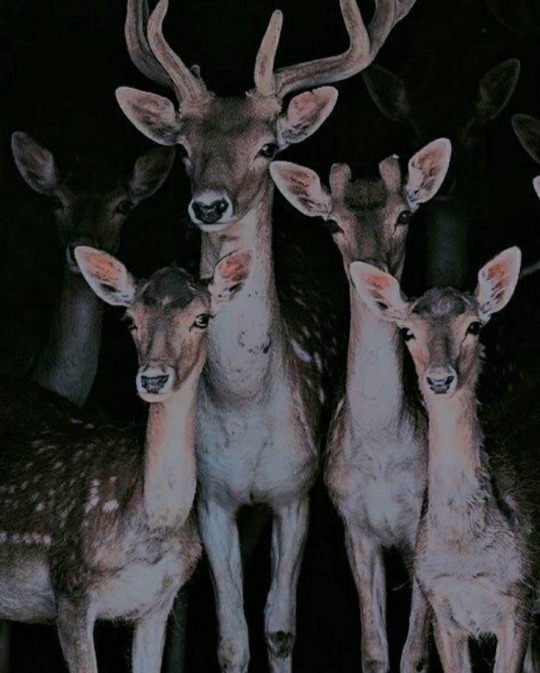
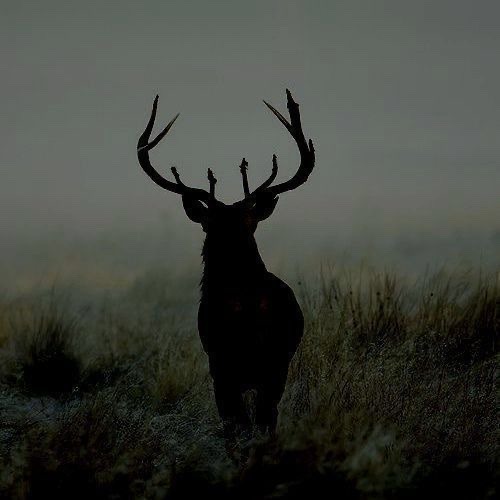



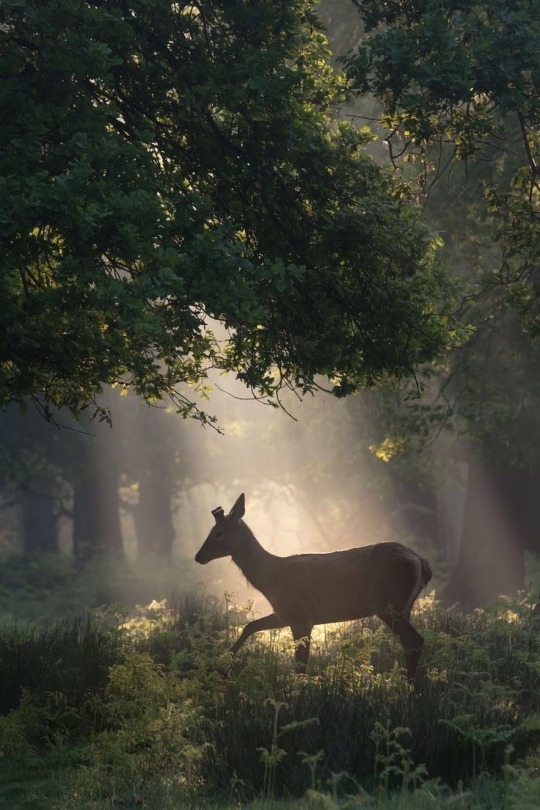

e-offering to Lady Artemis
Lady Artemis, I offer this to you tonight as a thank you. I honor and praise you. thank you.
Honor to the Gods!!!
#baby pagan#greek gods and goddesses#greek paganism#hellenic#hellenic devotion#hellenic polytheism#hellenic worship#hellenism#greek pantheon#paganism#ancient greek#hellenic community#hellenic pagan#e offering#hellenic deities#diety worship#dionysos#artemis#lady artemis
239 notes
·
View notes
Text
🦁🍷🍇Dionysus moodboard offering 🍇🍷🦁


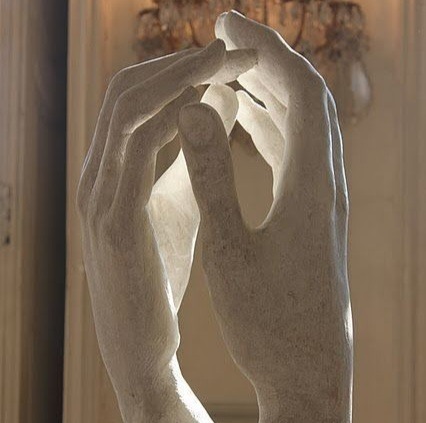

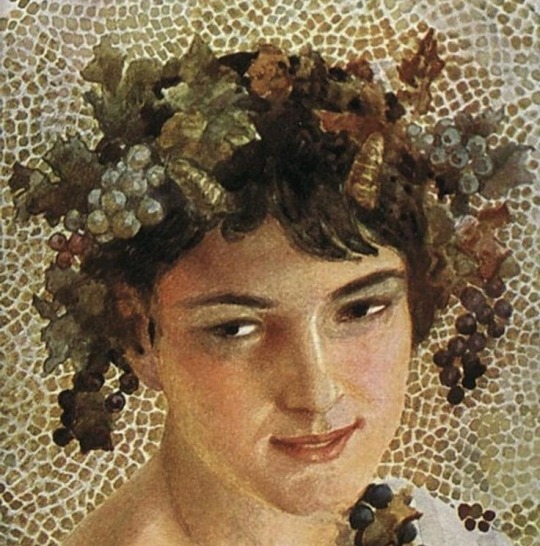




🦁🍷🍇-🦁🍷🍇-🦁🍷🍇
#dionysus#dionysos#moodboard#witch#witchblr#witchcore#witchy shit#offering#dionysus worship#diety worship#pretend like i didnt accidentally type noodboard and left it for a day-
102 notes
·
View notes
Text
Living for this kind of art ^^
Also: used it in my recent picsart edit
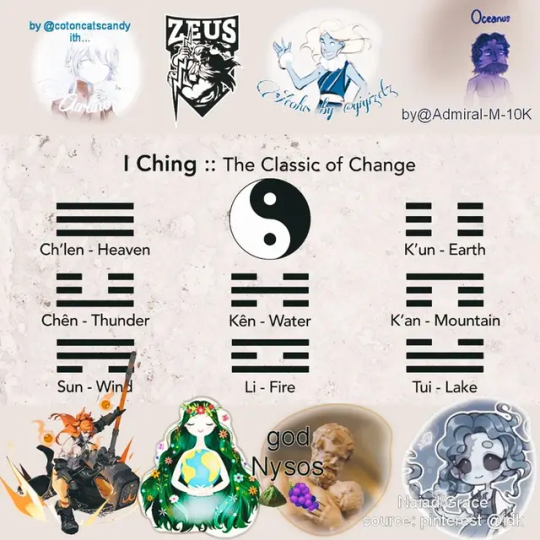
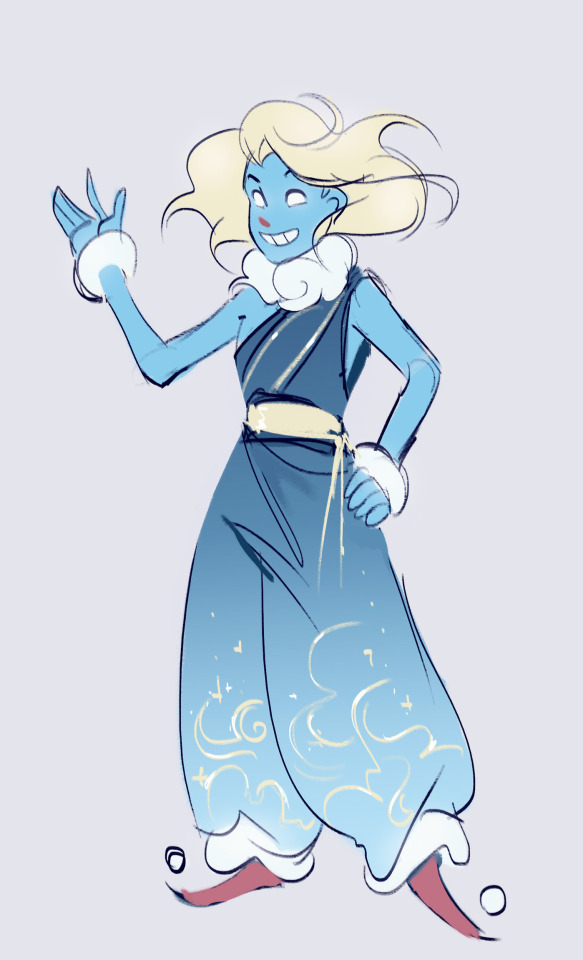
& here on the others..
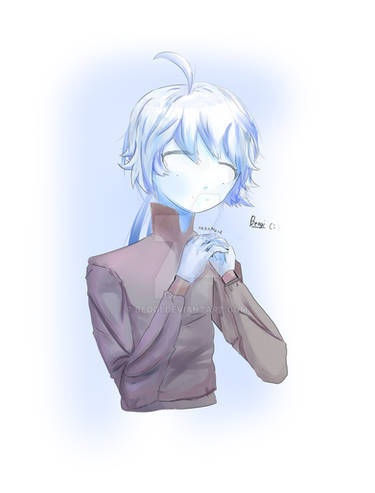
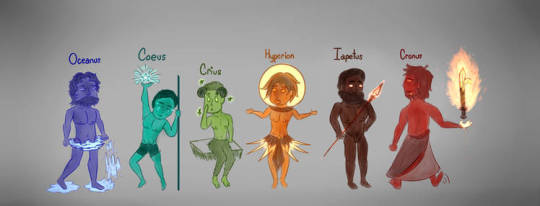
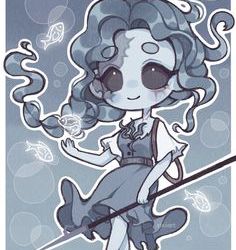
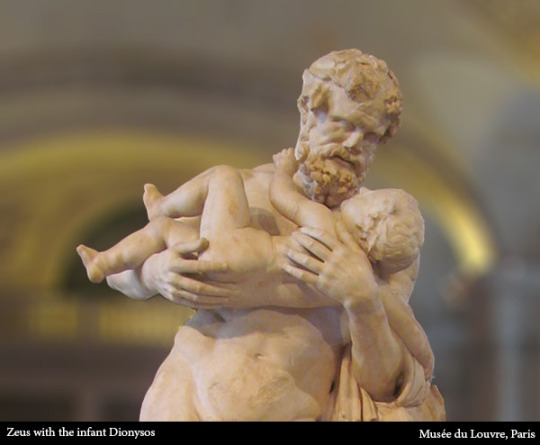
(Ofc the last one's a sculpture, cs yeah...)
Lovely one.. here on it, + credits, or what I was able to find...
1. Heaven Ouranos (for some reason wasnt able to locate the actual art; when i clicked on it it gave me the other art on the same god, weird, so i put on him, thinking s/he/they maybe did the same diety in two very different styles (tho love that one more) sorry cant credit, but ill try to find the actual art, maybe ill be let2, & will re-edit if all goes fine
2. Thunder - Zeus - from here
3. Wind - Aeolus - artist credited (awesome art from @gigizetz on tumblr, love the pants design ^^)
4. Water - Oceanos - art on devianart by @Admiral-M-10K
5. Fire - Hephaestus - from here
6. Earth - Gaia - also from here
7. Mountain - oh this one was tough, cause there are many, ofc makes sense for every mountain to have its own mountain spirits, & so with every lake, river (esp major ones) & even the mythical ones, i chose # Nysos, cause yeah, Dionysos, & cs s not something you'll find on a map^^
8. Lake - a Naiad/Grace ith, the ones who acompany Aphrodite Ourania... & here's on the eight trigram elements that make together
the I ching
Aeolus character design process!
(disclaimer: my writing sucks and I'm not good at explaining things so if it gets a bit weird just know I'm trying my best)
a lot of people have been saying very nice things about my character design for Aeolus in EPIC, and that makes me really happy! So I decided to break it down to show you guys my full process in designing them! :D
When I first listened to the snippet of Keep Your Friends Close I was very excited that this old bearded god man was going to be interpreted by a girl, so the first concept I had was to maximize this contrast by also making my Aeolus appear as a child. Aside from the contrast thing, it would also tie in with their playful personality. Here are some of the sketches I did at the time (around 2022):
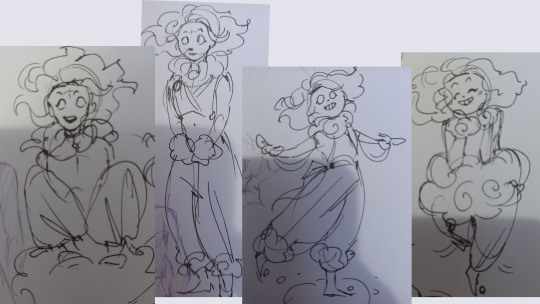
Since the beginning I always had the clown aesthetic in mind. Not sure why, just thought it matched the cute playfulness of the character. It was fun combining wind/cloud stuff with the clown aesthetic, like the cloud around the neck and wrists, which was supposed to resemble those ruff thingies that clowns usually wear.
I experimented with a lot of elements, like the headband and the cropped shirt, but I decided to remove and recicle them in other EPIC characters (Odysseus and Circe). Their design was also more feminine, and since I was aiming for a more androgynous look this would be changed later.
I remember around this time I saw a video of Jay where he said he envisioned Aeolus having a more calm nature aesthetic, so I decided to change my design to better match what he had in mind. I made the hair wavier, with clean and smooth lines, made sure that Aeolus would act less clown-like, rarely stand up and never abandon the cloud. These doodles better resemble the current design:

it was also around this time that I designed the island in the sky. My biggest inspiration was New Super Mario Bros. WII world 7, mainly because of the chill vibes and cute fluffy clouds. So I took that and threw the combined aesthetic of a child's playroom and ancient Greece temple on top of it and it was done.
Right now here's the full body reference of them:
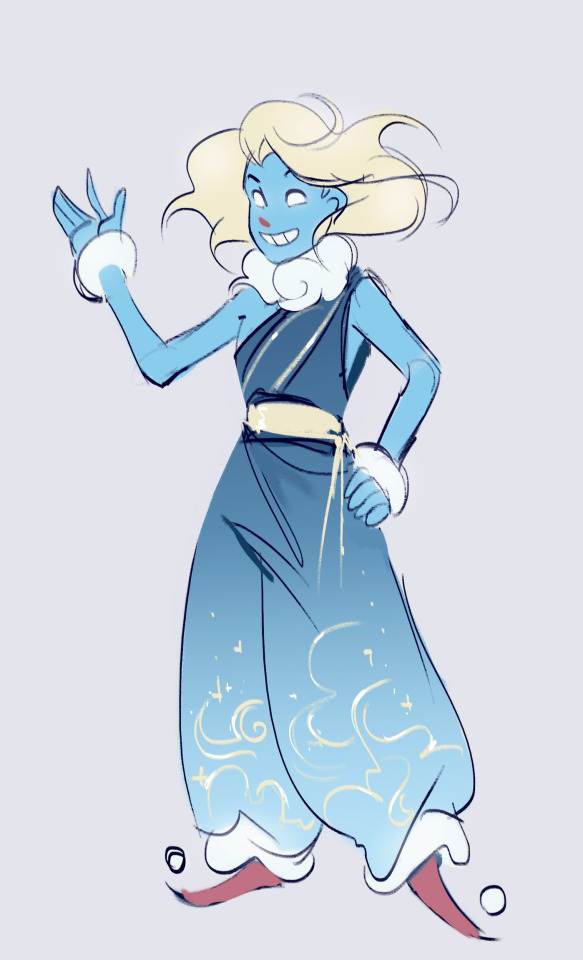
I'm very proud of it, I think it matches the themes and feelings I had in mind while also translating their personality quite well. The color palette is a simple blue/yellow/red, but the simplicity helps to complement the childish appearance. Their outfit is comfy, cute, and something you'd like to sleep in. The round shapes makes them adorable. Overall a cute little gremlin that is also a very powerful god.
#iching bagua trigrams nature elements big small greekgods spirits#chibiart & more creators tumblr pinterest deviantart picsartedit correlationart#digital art#art#greek myths#i ching#taoism#elements#heaven thunder wind water fire earth mountain lake
1K notes
·
View notes
Text
Dionysian statue from a thrift store that i found



It was made in Italy in 1989!!
#hellenic polytheism#helpol#greek gods#hellenic pagan#paganism#hellenism#dionysus devotee#dionysus#dionysos#dionysus devotion#dionysian#dionysus deity#dionysus worship#dionysus diety
145 notes
·
View notes
Text
Healing from religious trauma and working with Dionysus be hitting different lately. Going into it, I did a crapton of research and of course knew that he is associated with duality. There's a chaotic and jovial side to him, like the fun Dad that paints his nails funky colors and goes mall shopping with his kids. On the other hand, there's the darker, more primal side. A side driven by madness and often rage. He is a God of insanity, and he's not afraid to let everyone know it. I've definitely seen that duality in my life.
While I feel the soft and gentle support, the push to relax and enjoy life, I've also felt the whispers that it's ok to be mad. It's ok to be angry at those who hurt me. I confronted my Dad about all the baggage I've carried since ten years old, got my anger out and let him know how he failed me as a child. Although he refused to take responsibility, I've found that I don't care. It's taken me a long time, but I'm finally learning to let myself be angry. To finally wrangle that tightly wound yarn ball of anger that I've been shoving down to keep up a facade of perfect 'godliness'. Because if I don't deal with it, it'll just get bigger and bigger until I can't hold it in anymore. I need to work through it to heal, and Dionysus has given me the courage to do so.
"It's ok," he says,"it's ok to be angry. You don't need to pretend anymore. Let it go. Be angry, feel the rage, but know that once it's out of your system it'll feel so much better."
He embraces both my timidness and my rage, holding both in his arms and accepting that this is what makes me who I am. He doesn't tell me to hide how I feel. He lets me know that it's ok to feel angry, something that I as one raised in a Christian faith am unaccustomed to. I was told to bury any "bad" or "evil" inclinations, but that's not healthy. Dionysus knows this.
I am angry.
I am angry at all the Christian "friends" I had that took me out of the group chats and forgot I existed.
I am angry at my parents for all the pain they've caused me
I am angry at my siblings for their abusive behavior towards me
I am angry at the teachers I had that either treated me like a disease or a problem to be solved, and all the damage they inflicted
Most of all though, I'm angry at the Christian God who was supposed to be my "best friend", the one who wouldn't abandon me, who instead threw me to the wolves in sheepskin that I called my family. He left me. He deserted me, ignored my prayers and tears.
I'm angry at him mostly because he lied. He pretends to be perfect in judgement and without flaw. I hate being lied to.
I am a worshipper of Dionysus. Others may come, some may go, but that is who I am. I am damaged but healing. Enraged, but gentle to those who deserve my gentility. He collected the broken pieces of my soul and helped me put them back together. He is there when no one else is, and I am eternally grateful to him.
Thank you so much, Lord Dionysus.

#dionysus#tw vent#religious trauma#witchcraft#dionysian#dionysus deity#hellenic pagan#hellenic polytheism#baby witch#dionysos#dionysus diety#dionysus worship#im ok just working on stuff
29 notes
·
View notes
Text
iRead : Dionysos

Dionysos by Richard Seaford
I dropped out of uni and went to culinary school. Stuff with pages of footnotes is not my thing. I literally read this out loud to myself, so I could understand it. I copy/pasted choice quotes and then had to re-do my notes, bc I couldn’t understand what was being said. Each sentence has 3-7 extra words and academic phrasing. On several occasions, Dionysos is called imaginary, created, a social construct, and forgotten.
Man, tho.
This was good.

The book connects Dionysos’ seemingly random traits and domains into a single cohesive deity, showing him in relation to a true huan need. Reading (and understanding) this was actually a mystical moment for me. I felt like I knew Dionysos suddenly. I wanted to worship him.
In order to save you the burden of reading this, I’ll provide the sparknotes.
DOMAINS
Transformation & the Stranger
Not a chapter in the book, but sprinkled throughout, and really the first point of Dionysos. He is the transformer (robots in disguise), the herald of change, and often violent transformation. He himself is not any end point, but the act of change itself. He isn’t X to Y, he is the to, the bridge between while holding all three states simultaneously.
He (as well as his satyrs) sit on the nexus of three worlds : natural(animal) / mortal(human) / divine(gods). Humanity comes from nature and aspires to divinity. Dionysos, as the bridge, can bring humanity along in either direction.
Dionysos, in many ways, is the other. He is the foreigner (and the local), the opposite (and the original). The opposites he holds form a unity, while retaining their uniqueness as opposites. He evades definition and exists as paradox. He can share this paradox, by forcing a new perspective to become the unfamiliar opposition.
Dionysos shows what each of us has in the stranger inside them.
It feels like a cop-out : oh, a god can be anything. Dionysos’ sheer point is a cohesive identity… in lack of identity. He is the Liberation, Liberator and Liberated.
Nature (wine, vegetation, animals)
There are several nature-related gods, but Dionyos is the god of nature but make it dangerous. He is the tamer of the untamable. Wild animals pull his chariot. He, more than other Theoi, appear as wild beasts.
While he shares domain of “green stuff” with Demeter and Kore, he is the ripener of fruits, the act that changes flowers into food (again with change, and fertility).
Wine is the central symbol of this domain. The vine itself is wild, pure nature. Wine is transformed nature, by human labour, and still dangerous. In many appearances, Dionysos brings ever-flowing springs of wine — transformed wine, miraculous and divine.
Satyrs, like Dionysos, straddle the line between animal, human, and divine — but in an achievable way. In some celebrations, participants would dress up as satyrs. They’re beasts, who belong both in the company of the god and the heart of the civilized polis (“city”).
Communality
Phat word meaning unity but a lil to the left. The arrival of an outsider dispenses tension and unifies a group under a new focus. Any outsider, then, falls under Dionysos’ purview. In his festivals, slaves would celebrate as free men and prisoners would be released from jail. His days were also the days to announce freed slaves.
Myth: Return of Hephaistos
The craftsman god Hephaistos was hurled out of Olympos by his mother Hera for his deformity, and took revenge by sending her a throne with invisible fetters by which she was held fast. Only Hephaistos could release her, but he refused to return. But Dionysos made him drunk, set him on a mule, and brought him back to Olympos. In one version, a condition for Hephaistos’ return is his marriage with Aphrodite. In another, Dionysos is rewarded by being made one of the Olympian gods.
Maenads are a band of women, united by Dionysiac power. Religious initiation merges her soul into the whole, so they think and act as one. (The image of maenads running like a flock of birds taken flight is a great quote) It shows Dionysos doesn’t need wine or charm to unite people.
The traditional image of maenads as women in rags on a mountainside is traditional for a reason. In ancient Greek society, this was the other — a symbological reversal of the polis. The polis was constructed of male-led households, of solitary women — as the men joined the polis in civil and work duties. Dionysos’ great power was uniting these women with each other, then him, and the wilderness.
Mystery-Cult
Unless you reconstruct from Orphic traditions, Dionysiac mystery-cults may not be super useful, but the historical context is gold.
Mystery-cults were politically powerful and religiously important, as secret societies. The purpose was to join a group of this life, and the afterlife. As death was the fundamental rupture of personal identity, the mystery-cults looked to prepare for it and control it. So, they destroyed each other’s identity in controlled ritual. They also performed rituals on behalf of the polis, on Dionysos’ festivals.
Rituals, almost always, harkon back to myths. Festivals center on several myths, in reenactments and celebrations to give them meaning.
Orphic Myth: Dismemberment by the Titans
Dionysos is the natural-born son of Persephone and Zeus, but is ripped apart by Kronos and the Titans. His blood flows free as wine. Athena cradles his heart and puts him back together, wherein he is reborn. Wine’s psychological wholeness is then Dionysos’ wholeness.
Death
Dionysos likes going down-under. Does it a lot. He travels there to retrieve his mother, the prideful Semele, who Zeus raises as a goddess. In some myths, “by his witness” (weird, unknowable phrasing), Ariadne dies and he begins their romance in the Underworld as he rescues her and raises her as his bride (Zeus, sighing: Alright, once more). Both these myths (and several others of his) involve death or destruction before divinity.
Death, as the Orphics saw it, as the most fundamental and irreversible change to identity. Dionysos defies it. He raises once-mortals to Olympos. He charms the gloomy Underworld — notably, in art, making Cerberus a good doggo.
Dionysos is a god of united opposites, the center where they meet — nature/civilization/Olympos, animal/mortal/divine, fertility/death/immortality. His festivals celebrate the union of life and death — dominated, always, by life. He’s closer to mortals than many gods, by his actions (revelry, wine, dancing, frequent manifestations), but also by a crucial mythical act. Death. Dionysos is both born and killed.
Myth: Semele
Hera grows indignant as Zeus takes another lover and coerces Semele to ask her divine lover to see his true form. Semele tricks Zeus into an oath. Forlorn, he shows her his power — and she is promptly incinerated. Zeus sifts the ashes for the fetus Dionysos, who he sews into his flesh. In time, Dionysos regains strength and is born anew.
Ecstasy / Trance / Madness / Altered States
Dionysos’ madness was considered a cure for everyday madness — the worst kind. Dionysian madness was a temporary gateway, the storm before the calm. After the intensity of ritual and invoked state, there is the exhausting liberating calm of Dionysos himself. I compare this to a good workout — after exhaustion, the endorphins kick in. Caffeine, alcohol, lust, drugs — these intoxications all begin with extreme physical senses, before altering states.
This book talks less of “madness” and more of “trance”. Madness is a hard word to define. The book discusses “trance”, of a mind being influenced or united with something other than itself. Maenads sing of joining the soul-bird to the thaisos (band of maenads). The rituals pull on Dionysos’ dismemberment myth, seeing it not as his body but mind being broken apart and then reassembled through madness into calm.
Think astral travel or controlled dissociation, disconnecting the consciousness from the body and latching it to a new whole — in part, connecting it to Dionysos as the bridge. As a god, he relieves powerlessness. Humans are subjugated to two main forms: remoteness of deity and human oppression. Through ecstatic communality with others (and himself), he relieves both. He remains intimately close to those who join with him.
Theatre
Took us a while to get here, but do you see it?
Theatre was a happy accident of everything else that Dionysos is. It was created through other Dionysiac ritual. It combines the mystery-cults’ transformation of identity, ritual death, and costumes. Because the mystery-cult rituals were private, they opened up just enough. Hymns rewritten to new patterns. Ritual reenactments, interspaced with satyrs and maenads.
If you’ve ever been in a crowd at a concert or movie theatre or stage show, you probably know where I’m going. As an observer, you dissolve into the waves of shared emotion. You are both only an observer of the show, but part of a whole. The experience of a crowd is uniquely Dionysian — and explicitly how maenads join together.
Traditional tragedy follows a pattern in Dionysian myths: people resist his influence, they’re stricken into madness or kin-killing, they embrace him and establish a new regime.
Comedy even comes from the word komodia (“a song sung at komos”, komos being a revelry common at Dionysian festival).
Why does Dionysos matter in the modern world?
God, one of the best chapter headings. I came back to Hellenism because, to me, it’s familiar religion. I like the meaning of sacrifice, of kharis, and ethics. I like the aesthetic.
This made it again about the gods.
Dionysos matters because we need him. We always have. In the modern post-capitalist dystopia, we need him more than ever. For all the times I’ve had to paraphrase this book, I’m actually gonna quote it because this slaps.
The psychological fragmentation and forced homogeneity of our consumerist culture creates an intense need for transcendence. … It cannot be fulfilled by institutionalized religion, because such religion is part of social control that tends to limit the moral and religious experiences. True liberation can be achieved only by adopting an outsider’s perspective from which to perceive the culture’s narrowness.
Consumer capitalism destroys the emotional wholeness of communality. The intense emotion of a gathering of people can seem strangely insignificant and powerless, in our society, for significance and power always seem to be elsewhere.
Myth: Midas
Midas captured Silenos, the wise companion of Dionysos, and asked him what is best for humankind. Silenos spoke of natural and ancient things of his lord. As a reward for releasing Silenos, Midas was offered by Dionysos the fulfilment of any wish, and chose the power to transform all things by his touch into gold. Midas’ own answer to his question is money. Midas’ touch is the reaction of the Greek mythical imagination to the astonishing power of precious metal as universal equivalent: everything can now be valued in money — but nothing of true worth.
As humanity grows more alienated, from individuals and each other, we’re left with a sense of loss, of absence. An absence implies a presence that had once been there. An absence and presence of a transcendent power that unites us with nature and humankind and the divine.
Dionysos.
78 notes
·
View notes
Text
The Garden of Innocence
Dionysus x Ariadne | Teen+
Summary: Ariadne goes camping with her questionable boyfriend.
Beautiful artwork here: (x) @hycinthrt
Chapter 3
Theseus was supposed to be a great sailor. He was also supposed to take his girlfriend directly from Crete to Athens, where she would meet his parents. They were going to get married and probably have twelve babies. So far, she was disappointed.
Ariadne was a beautiful princess. She wore flouncy dresses as were popular in Crete and she had once even enjoyed indoor plumbing. Camping wasn’t really for her.
Nevertheless, she was filled with hope. Theseus had found a tree full of delicious figs. He impressed her with a blue-green bonfire of burning driftwood and told her stories of Herakles under the stars. He got most of the details wrong, but she didn’t correct him. She didn’t really care. She was safe against his strong shoulder, a loving arm around her and a warm fire at her feet.
He was so handsome. His runners legs. His full, springy hair. He reclined against her, fighting sleep from the long hours talking. Ariadne glowed with pleasure at the easy, confiding touch. She reached to take his hand. Its shape was graceful, yet hardened and rough from holding a sword. Exactly as a prince’s should be. He was perfect. If she played her cards right, he might take her right here on the beach.
“Are you cold?” he asked.
She shook her head, a shy no. “But don’t stop. It feels nice.”
He hugged her closer. His kisses warmed her face like sunlight. She turned in his arms, pressed herself fully against him. Ariadne longed to be deflowered. At home, her diary was loaded with specific visions that made even her married friends balk.
“No, enough,” he said, “We are not … You make yourself unseemly.”
“But you … what about yesterday? By the fig tree, you seemed like —“
“Exactly,” said Theseus, his voice stern, “I … was undiscipled. I should treat you more gently. You are yet a maiden. As it should be.”
She began to wonder if he was a virgin and tried not to let surprise and suspicion show on her face. At that moment, the fire popped. He was alert at once, pulling her upwind of brightest blue sparks.
“You weren’t burned, were you?” The change of subject was ever so apparent.
“No,” she said, “I’m sleepy though. Don’t put any more wood on.”
“Alright.” He smoothed her hair back and kissed her head. “Sailor’s say driftwood fire is the color of nereids’ hair.”
“Oh no,” she laughed, “Their hair is long and grows faster than normal but it’s brown or black like ours. Sometimes golden, I suppose, but not that I’ve ever seen.”
Theseus frowned at the correction.
“You’ve seen them?”
Ariadne was dumbstruck and then she laughed at him. “What? Of course.”
“O-oh,” it falls out in two syllables, “Your mother’s line. Of course.”
It was common knowledge that she was naiad-born through the queen’s side.
“I had only been thinking of Minos’s side.”
She was three quarters god and he was only just now doing the math.
“Yes, well it’s not as if we actually hear from Zeus,” she laughed, attempting to dismiss the gravity of the connection.
“Still … he is your grandsire.”
“I suppose. I know more from my mother. My aunt Circe—“
“Circe? The witch?” His voice was so harsh that her eyes stung with tears. “Your mother’s sister is Circe the witch.”
“She’s just some weird old hermit. It’s not like we’ve ever met.”
“She’s your kinswoman regardless.”
“It’s not a secret, Theseus.”
“No I supposed not,” he mumbled, feeling scandalized and foolish all at once.
Ariadne was grateful that the island was so full of night sounds that it softened the tense silence between them.
“Thank you for finding this place. I don’t know much about foraging so … so, at least there’s food I recognize.”
“Oh. It was,” he dragged a nail through the packed sand, “It was no trouble, Ariadne.”
“Mmhmm.” She stares vaguely at the flames, knees drawn in.
Theseus stroked her lamb-soft ringlets. “Your hair is pretty.”
The compliment was uncreative at worst. She leaned into him, and there was a shallow sort of peace between them.
“Since you’re tired,” he said, “I’ll watch the fire. And for wild animals. You have nothing to be afraid of.” His brow knit with the continued list of concerns he did not voice. The hero patted his thigh, indicating for her to rest her head.
“Pirates?” she teased.
“Naturally.”
“What if there’s wicked old vagrant in the woods?”
“I shall have his head.”
She curled against him, head on his lap. The innocence. The indecency. She fell asleep practically bubbling over.
To their backs, a forest grew black and heavy with underbrush. It breathed, and the air was luxuriant with summer fruit. And as the stars turned, a flower opened to the far off sound of a girl’s dreaming voice.
Continued: (x)
@withlovefromolympus @dionysian-daydream @kebriones @margaretkart @lefty-scissors @hycinthrt @human-still-developing @a-world-of-whimsy-5 @silly-billy-the-bunny @badbitchdionysian @ygnoe @shitfacedalways and @werememberthedoctor you too, what the hell, though I fear you will cringe because we’re irl friends.
#greek mythology#dionysus x ariadne#ariadne#dionysus#theseus#fluff#cuddles#lord dionysus#dionysus diety#dionysos#euripedes
35 notes
·
View notes
Note
3 and 11
3. What's your favorite myth?
I would say the myth where Dionysus is traveling to save Aradine (idk if I spelled it correctly) and where he changes in order to stop them, and then they get an island together. I just thought it was cute 🥺🥺🥺
11. Do you wear devotional jewelery?
I have my snake ring for Dionysus and Loki
Loki wanted me to wear something trans so technically my trans plague doctor pin is devotional lol
I have a generic purple bracelet I wear for Dionysus
6 notes
·
View notes